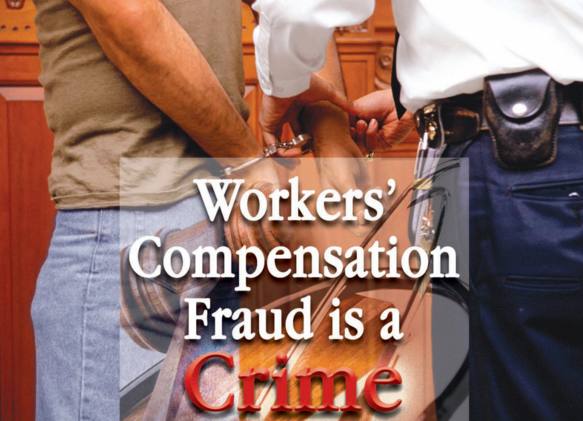Illinois WC Fraud Unit Mines few Convictions
Wednesday, July 29, 2015 | 0
The Illinois’ Workers’ Compensation Fraud Unit came into existence 10 years ago to police and prosecute misbehavior, but there were just six convictions in 2014, with only one resulting in jail time.

(image via insurance.illinois.gov)
The number of convictions, prosecutions, history and purpose of the WCFU are contained in the annual report of James A. Stephens, the state’s acting director of the Illinois Department of Insurance, given to Gov. Bruce Rauner June 30.
Established by the Illinois General Assembly in 2005, the WCFU is charged with investigating workers’ compensation fraud claims, developing cases and referring them to the appropriate prosecutor. The state budgeted $950,000 for the unit's operations in the 2014-15 fiscal year, but Gov. Bruce Rauner's budget proposal states that the unit spent only $370,300 of that money.
The fraud unit's report indicated there were six convictions last year as a result of its work, with one resulting in an 8½-year prison sentence. In the others, the defendants were put on probation between six and 30 months, with fines and restitution also ordered.
By contrast, California convicted five people of workers’ compensation fraud in April alone, with four getting prison sentences ranging from a day to two years and the fifth defendant receiving probation, according to a report from the California Department of Insurance Fraud Division. The two were sentenced to two years in prison, but 16 months of their sentences were suspended, so they served only four months.
The Ohio Bureau of Workers' Compensation reported 11 workers' compensation fraud convictions in May alone. Investigations by the Florida Department of Financial Services resulted in 259 workers' compensation fraud convictions in 2013, according to the Insurance Fraud Division's annual report.
Of the 100 complaints that Illinois' fraud unit received in 2014, the WCFU rejected 58 for lack of sufficient evidence and is actively investigating 20, according to the report. The eight cases referred to the attorney general or an appropriate state’s attorney were from 2012 or 2013. An additional 18 matters were also reviewed: two from 2012 and 16 from 2013.
Ten 2014 investigations were carried into this year. WorkCompCentral asked the Insurance Department for updated information for 2015, but had received no response as of late Tuesday.
In New York, there were 99 cases prosecuted last year, according to a report from Benjamin M. Lawsky, the state’s superintendent of financial services, to Gov. Andrew Cuomo and the state Legislature.
Local Illinois prosecutors do not pursue workers’ compensation fraud claims on their own, relying instead on referrals from the WCFU, according to Cynthia Vargas, the communications manager for Lake County State’s Attorney Mike Nerheim.
Not all cases referred for prosecution ultimately result in active matters in the criminal justice system. Of the eight forwarded in 2014, there has been one grand jury indictment, four were rejected by the prosecutor and three are still under consideration.
When the WCFU was established, it was a joint effort of business, labor and government officials to combat fraud, according to the report. Initially the intent was to catch people trying to obtain compensation when there was no entitlement, according to Steve Brown, a spokesperson for Illinois House Speaker Michael Madigan.
“When we first passed this, we thought it would be for employees who tried to file false claims,” Brown said. “We also found (fraud) with insurance companies and employers.”
Last year, four of the convictions were for misstatements of individuals trying to get payment to which they were not entitled, while the other two were against employers trying to avoid paying premiums.
The WCFU does not actively look for cases, but relies on referrals, according to the report. There were 29 accusations of fraud made by lawyers, 17 from investigators working for insurance companies, 15 directly from insurance companies, 13 by employers, nine from private citizens and the rest from other sources.
During 2014, the WCFU had between two and four investigators working on its cases, the lowest number since 2011, according to the report.
The unit is trying to find more sophisticated ways to detect fraud, including advanced computer analytics, under a 2011 amendment to the law, according to the report. This method would mine databases for possible evidence of wrongdoing. No system has been acquired. Earlier this year, the WCFU learned the information available to it was not sufficient for this modeling.
WorkCompCentral asked Rauner’s office for comment, which was not provided prior to deadline.



Comments